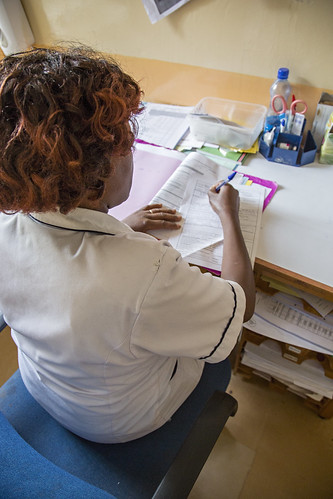 What could be more exciting than reading State mandated rules for child care?
What could be more exciting than reading State mandated rules for child care?A lot of things.
Like. A lot. A lot of things are better than reading laws.
However, if you make yourself read through them on a regular basis, you will ensure that you are providing high quality care within your legally licensed business.
In Massachusetts, all of the regulations about child care are available online. It is important to note that the regulations are updated constantly as "policies" and care givers are expected to know, understand, and comply with those policies in addition to the regulations.
To read the full listing of regulations: 606 CMR 7.00
To read the full listing of policies: Licensing Policies for Family Child Care Providers
What I hope to do each week is to highlight one section of the regulations or a policy. This is to keep those rules and guidance fresh in our minds so that we can ensure we are doing our best to be following them.

One downside to these regulations that comes up often between providers, is that the regulations are loosely written. This works for licencors, because they are able to make the regulations work for them. This is important, because the needs of various regions and populations is different from town to town across the State. If a licencor can make the regulations cover what they feel is an unsafe or unsound decision that a provider made, then that protects the children.
This does not help child care providers. Since the rules are so loosely written, it makes it much more difficult to follow the rules. Some providers are told one thing, while others are told something contradictory, yet both fall within the guidelines of the regulations. This is extremely frustrating, as providers typically network, share ideas, and help each other with their program planning.
Because of these contradictions that are a part of the regulations, it is important to check with the licencor that works in your district. Their interpretation is the one that you want to understand and follow. It is important that you know what the regulation is that you are concerned with. It will help you when talking to your licencor about what would be best practice for your program.
These are the sections of 606 CMR 7
7.01 Introduction
7.02 Definitions
7.03 Licensure and Approval
7.04 Administration
7.05 Interactions Among Educators and Children
7.06 Curriculum and Progress Reports
7.07 Physical Facility Requirements
7.08 Family Involvement
7.09 Educator Qualifications and Development
7.10 Ratios, Group Sizes and Supervision
7.11 Health and Safety
7.12 Nutrition and Food Service
7.13 Transportation
7.14 Applicability and Effective Date

Let's sharpen our knowledge. First we will look at the definitions as listed in the Regulations.
Understanding the definitions as defined by the State will help with understanding of other parts of the Regulations. Read them below.
7.02: Definitions
As used in 606 CMR 7.00 et. seq., the following words shall have the following
meaning unless the context otherwise requires:
Applicant - The individual who has been designated as the person responsible for the
administration of the program or facility and is the duly authorized agent of the person
applying for licensure or approval.
Approved Activity Space – The indoor and outdoor areas determined by the Department
to be safe and appropriate for children in an early education and care program. This
space shall include only usable floor space exclusive of hallways, bathrooms, and
portions of rooms or areas that contain furniture or equipment suitable only for adult use.
Approved Private Elementary School - A program that has documentation of approval by
the local education authority pursuant to G.L. c.76 §1.
Certified Assistant – A person who holds a certified assistant certificate issued by the
Department; who, at minimum, meets the qualifications of a provider licensed to care for
six children; and who works with or substitutes for the licensee in a family child care
home, depending on his/her level of qualification.
Child – Any person under fourteen years of age, or sixteen years of age with special
needs.
Child Care Center - A facility operated on a regular basis whether known as a child
nursery, nursery school, kindergarten, child play school, progressive school, child
development center, pre-school, or known under any other name which receives children,
not of common parentage, under seven years of age, or under 16 years of age if these
children have special needs, for non-residential custody and care during part or all of the
day separate from their parent(s). Child Care center shall not include: any part of a public
school system; any part of a private organized educational system, unless the services of
such a system are primarily limited to kindergarten, nursery or related pre-school
services; a Sunday school conducted by a religious institution; a facility operated by a
religious organization where children are cared for during short periods of time while
persons responsible for the children are attending religious services; a family child care
home; an informal cooperative arrangement among neighbors or relatives; or the
occasional care of children with or without compensation therefore.
7.02 Definitions: continued
Children with Special Needs – Children under sixteen years of age, who, because of
temporary or permanent disabilities arising from intellectual, sensory, emotional, physical
or environment factors, or other specific learning disabilities, are or would be unable to
progress effectively in a regular school program. This may include, but not be limited to,
a school age child with disabilities as determined by an evaluation conducted pursuant to
M.G.L. c. 71B, § 3, and as defined by the Department of Education in 603 CMR 28.00 et.
Seq, or an infant or toddler with an individual family service plan (IFSP) receiving early
intervention services.
Continuing Education Unit - A nationally recognized method for recognizing
participation in professional development and training activities. One CEU is granted for
each 10 hours of instruction. CEUs must be approved by organizations designated by the
Department.
Curriculum – The topics within the areas of English language arts, mathematics, science
and technology/engineering, history and social science, comprehensive health, and the
arts that will be addressed through planned and unplanned program activities.
Day – Shall mean calendar days unless otherwise specified in 606 CMR 7.00 et seq.
Department – When used alone shall mean the Department of Early Education and Care.
Diverse Learners - Children who have special physical, emotional, behavioral, cognitive
or linguistic needs or whose primary learning modality is visual, auditory, tactile or
kinesthetic, who may require an adaptation in the environment, interaction or curriculum
in order to succeed in their program.
Educator – Any person approved by the Department for the regular care and education of
children unrelated to the educator in a location outside the children’s own home for all or
part of the day, regardless of his/her level of certification.
EEC – The Department of Early Education and Care.
Evening Care - Child care provided between the hours of 8:00 p.m. and 11:30 p.m.
Family Child Care –Temporary custody and care provided in a private residence on a
regular basis during part or all of the day for no more than ten children younger than
fourteen years of age or children under 16 years of age if such children have special
needs. Family child care shall not mean an informal cooperative arrangement among
neighbors or relatives, or the occasional care of children with or without compensation
therefore.
Family Child Care System - Any entity or person who, through contractual arrangement,
provides to family child care homes that it has approved as members of said system,
central administrative functions including, but not limited to, training of operators of
family child care homes; technical assistance and consultation to operators of family
child care homes; inspection, supervision, monitoring, and evaluation of family child care
7.02 Definitions: continued
homes; referral of children to available family child care homes; and referral of children
to available health and social services, provided, however, that family child care system
shall not mean a placement agency or a child care center.
Fixed Age Group: A group of children within the same age range, such as infants,
toddlers, preschoolers, kindergarten, and school age.
Group – Two or more children who participate in the same activities at the same time and
are assigned to the same educator for supervision, at the same time.
Half Day Program – A program that operates four or fewer hours per day, or a program in
which no child attends more than four hours per day.
Health Care Consultant – A Massachusetts licensed physician, registered nurse, nurse
practitioner or physician’s assistant with pediatric or family health training and/or
experience.
Health Care Practitioner – A physician, physician’s assistant or nurse practitioner.
Household Member - Any person other than the educator who resides in the family child
care home for 30 consecutive days or more.
Infant – A child who is under fifteen months of age.
Kindergarten Child - A child who is five years old or who will attend first grade the
following year in a public or private school.
Large Group and School Age Child Care – Any program that receives on a regular basis
more than ten children who are unrelated to their caregivers and are younger than
fourteen years old, or sixteen years, if such children have special needs, during all or part
of the day for non-residential care and education outside their own homes. Such
programs shall include, but not be limited to, those commonly known as child care
centers, day care centers, preschools, nursery schools, child development programs,
school age child care programs and before and after school programs, regardless of their
location. Such programs shall not include any part of a public school system; any part of
a private organized educational system, unless the services of such a system are primarily
limited to kindergarten, nursery or related pre-school services; any part of a program
operated by an organized educational system for the children enrolled in that particular
system, unless the services of such system are primarily limited to a school age child care
program; Sunday schools or classes for religious instruction conducted by a religious
institution; a facility operated by a religious organization where children are cared for
during short periods of time while persons responsible for such children are attending
religious services; an informal cooperative arrangement among neighbors or relatives; or
the occasional care of children with or without compensation therefore.
Licensed Capacity – Determination by the Department of the number of children that a
program can care for at any one time under 606 CMR 7.00 et seq.
Licensee – Any person holding a license or approval issued by the Department.
Medical Emergency - An unforeseen event that results in the family child care educator,
a child in care, spouse, parent, or household member of the family child care educator
needing immediate medical or mental health treatment.
Mixed Age Group: A group of children within two consecutive age groups, such as
Infant/Toddler, Toddler/Preschool, Preschool/School Age or Kindergarten/School Age.
Multi-Age Grouping: Ten or fewer children from birth through thirteen years (or sixteen
years, if such children have special needs) assigned to a single group.
Occasional Overnight Care - Child care provided between the hours of 11:30 p.m. and
6:00 a.m. that is not provided on a regular basis.
Older School Age Child – A child at least nine years old.
Parent - Father or mother, guardian, or person or agency legally authorized to act on
behalf of the child in place of, or in conjunction with, the father, mother, or guardian.
Premises - The private residence or the facility that is licensed for the early care and
education of children, and the approved outdoor space on which the residence or facility
is located.
Preschooler/ Preschool Child – Any child at least two years and nine months old but not
yet attending first grade.
Private Residence - A dwelling that is occupied for living purposes so long as the
dwelling is the occupant’s full-time legal residence, and contains the facilities necessary
for sleeping, eating, cooking, and family living.
Professional Development – Ongoing education or training designed to increase an
educator’s skills or knowledge or assist the educator in gaining new competencies in his
or her profession or in a field closely related to his or her profession. Professional
development may fulfill the annual number of hours required by regulation to maintain a
license, registration or credential, and/or may result in college credit or CEUs that lead to
career advancement.
Program – Any family child care home, small group and school age or large group and
school age child care program.
Program Staff – Anyone employed by or working with the child care program who may
have contact with children.
Regular Assistant – A person who holds a regular assistant certificate issued by the
Department; does not meet the qualifications of the licensee for whom they are working;
and who may replace a licensee or certified assistant on a limited basis in a family child
care home as allowed under 606 CMR 7.09(15)(c)2a.
Regular Overnight Care - Care provided to any child care child between the hours of
11:30 p.m. and 6:00 a.m. more than one day per week for more than eight weeks in a
twelve-month period.
Relative – A person who is a parent, grandparent, great grandparent, aunt, uncle, great
aunt, great uncle or sibling by blood, marriage or adoption.
School Age Child – a kindergarten child or a child who is attending a public or approved
private elementary school.
Small Group and School Age Child Care – Any program that receives on a regular basis
ten or fewer children who are unrelated to their caregivers and are younger than fourteen
years old, or sixteen years, if such children have special needs, during all or part of the
day for non-residential care and education outside their own homes, when such services
are not provided in a private residence. Such programs shall include, but not be limited
to, those commonly known as child care centers, preschools, nursery schools, child
development programs, school age child care programs and before and after school
programs. Such programs shall not include any part of a public school system; any part
of a private organized educational system, unless the services of such a system are
primarily limited to kindergarten, nursery or related pre-school services; a Sunday school
conducted by a religious institution; a facility operated by a religious organization where
children are cared for during short periods of time while persons responsible for such
children are attending religious services; a family child care home; an informal
cooperative arrangement among neighbors or relatives; or the occasional care of children
with or without compensation therefore.
Standard Precautions - Infection control guidelines (per the Center for Disease Control)
designed to protect individuals from exposure to diseases spread by blood and certain
body fluids. Standard precautions include, but are not limited to, the use of personal
protective equipment, proper disposal containers for contaminated waste, hand washing
and proper handling of bodily waste.
Toddler – A child who is at least fifteen months of age, but under thirty-three months of
age.
Unsupervised Contact with Children – Any contact with children in an EEC licensed
and/or funded program when no other Background Record Check cleared person is
directly present.
Use Zone -- The surface under and around a piece of equipment onto which a child
falling from or exiting from the equipment would be expected to land.
Volunteer – Any person who assists in an unpaid capacity on a regular basis in an EEC
licensed or funded program.

Comments
Post a Comment